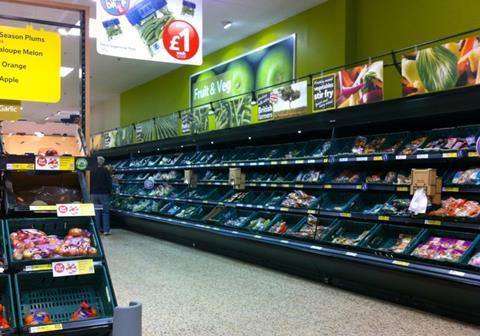
Tesco has managed to extend the shelf life of some of its fresh produce lines by “up to 10 days” thanks to a change in its supply
chain logistics.
The supermarket has made food waste one of its three key priorities and, as part of this, its head of food waste has revealed some of the key changes already taking place.
Speaking at the ‘No Opportunity Wasted’ conference organised by the Dutch Embassy in London recently, Mark Little explained how the UK’s leading retailer was now “guaranteeing” to take 80 per cent of the crop from its suppliers.
This meant, he told delegates, that Tesco no longer had to use packhouses to buffer supply.
In fact, the number of cases of fresh produce that were now bypassing packhouses has climbed from two million to 14 million.
This has also helped extend the shelf-life of produce bought within the EU by two days, while that from the southern hemisphere has been extended by up to 10 days, Little said.
Little told FPJ this was a “really significant” change in how Tesco works, with fruit and vegetables going direct to distribution centres, thereby cutting residency and the amount of produce “sitting in packhouses”.
In October, Tesco revealed the extent of the food waste in its supply chain, with fresh produce identified as a particular problem. Of all the grapes and apples it sold, for example, 24 per cent and 40 per cent respectively were wasted, while nearly 70 per cent of salad bags ended up binned. The lion’s share of waste was also found to occur in the home, with families estimated to be throwing away about £700 worth of food a year.
Matt Simister, food sourcing director at Tesco, then caused controversey last December when he told a House of Lords inquiry into the issue that UK customers “always pick the cream of the crop”, forcing stores to bin thousands of tonnes of old or misshapen produce.
In a separate event in London this month, WRAP presented research highlighting how confused consumers are when it comes to packaging of fresh produce.
Its research found that almost two-thirds of consumers believe it is always best to remove fruit and vegetables from the packaging, while just 22 per cent look at storage advice on pack.



